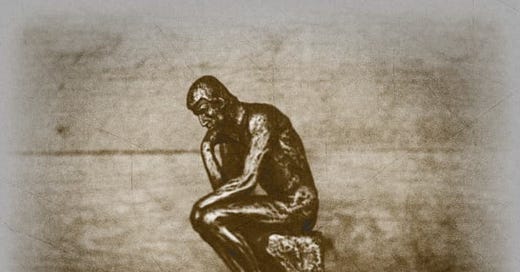Faith is a Work
If you ask a Christian, “Is SALVATION (or justification) by faith or by work(s)?” You’ll get a mixed response, but in general most will say that it’s by faith. Some will try to be clever or funny and say that it’s by work, with a short pause to see how you would react, and then wrap it up with, “God’s work that is.” Now, if you ask, “Is FAITH a work?” You’ll enter some deep soteriological territory.
⦿ Why do some people consider “believing in the Lord Jesus Christ” to be a work? The example of Abraham shows that his belief in God was credited to him as righteousness. If salvation is based on works, then it is no longer by grace. It seems that only humans perceive belief as a work, not God.
Have a look at Psalms 1 for Abraham.
“You are the LORD God,
Who chose Abram,
And brought him out of Ur of the Chaldeans,
And gave him the name Abraham;
You found his heart faithful before You,
And made a covenant with him…”
—Nehemiah 9:7-8
God choosing Abraham comes first. The faith of Abraham or his faithfulness comes after God’s choice of him. Faith is not a work in the sense that it’s not something originated in Abraham but a gift from God. And it’s a work in the sense that it’s God’s work because it has its origin in God. If faith is something originated in you, then it’s your work. Regardless of whether you’re a Calvinist or not, faith is indeed a work. Jesus answered and said to them,
“This is the work of God, that you believe in Him whom He sent.” (John 6:29).
Saving-Faith is a gift. It is a work of God. We just believe and exercise that gift/faith.
Reformed theology does not exclude one’s individual faith in the salvation process. It is not God who believes for us, but it is we who individually exercise faith or trust in Christ. The difference is that saving faith, according to the Calvinistic perspective, is not a work that man can either muster or merit on his own, but must be granted to him from God. In this sense, it concurs with what Paul argues in Romans 3:27-28 that faith and human works are to be distinguished.
On the other hand, saving faith, according to the Arminian scheme of things, can be properly viewed as a “work,” since it does not come from the hand of God, but springs from the human will. Its origin or source is found in man and can be mustered any time he so chooses. Properly speaking, then, men have the right to boast in themselves, for it was they (not God) who made the decision to believe; it was they (not God) who possessed the wisdom or intellectual acumen to make the proper choice for Christ. They might claim that it was God’s grace that provided the initial gift of redemption, but in the end, it was up to them to effectively receive that gift and sustain it throughout their lives.
The Arminian position, therefore, logically and scripturally leads to seeing faith as a work, despite their denials to the contrary. Only the Reformed view does justice to the teaching of Scripture and destroys any ground for boasting. —Jeff Spry
In summary, for the Non-Calvinists, if faith is not a work, then it is a gift from God. If it’s not a gift from God, then it is a work. The trick from Non-Calvinists is that they claim Faith is not a work, but then deny that it’s even a GIFT from God.



